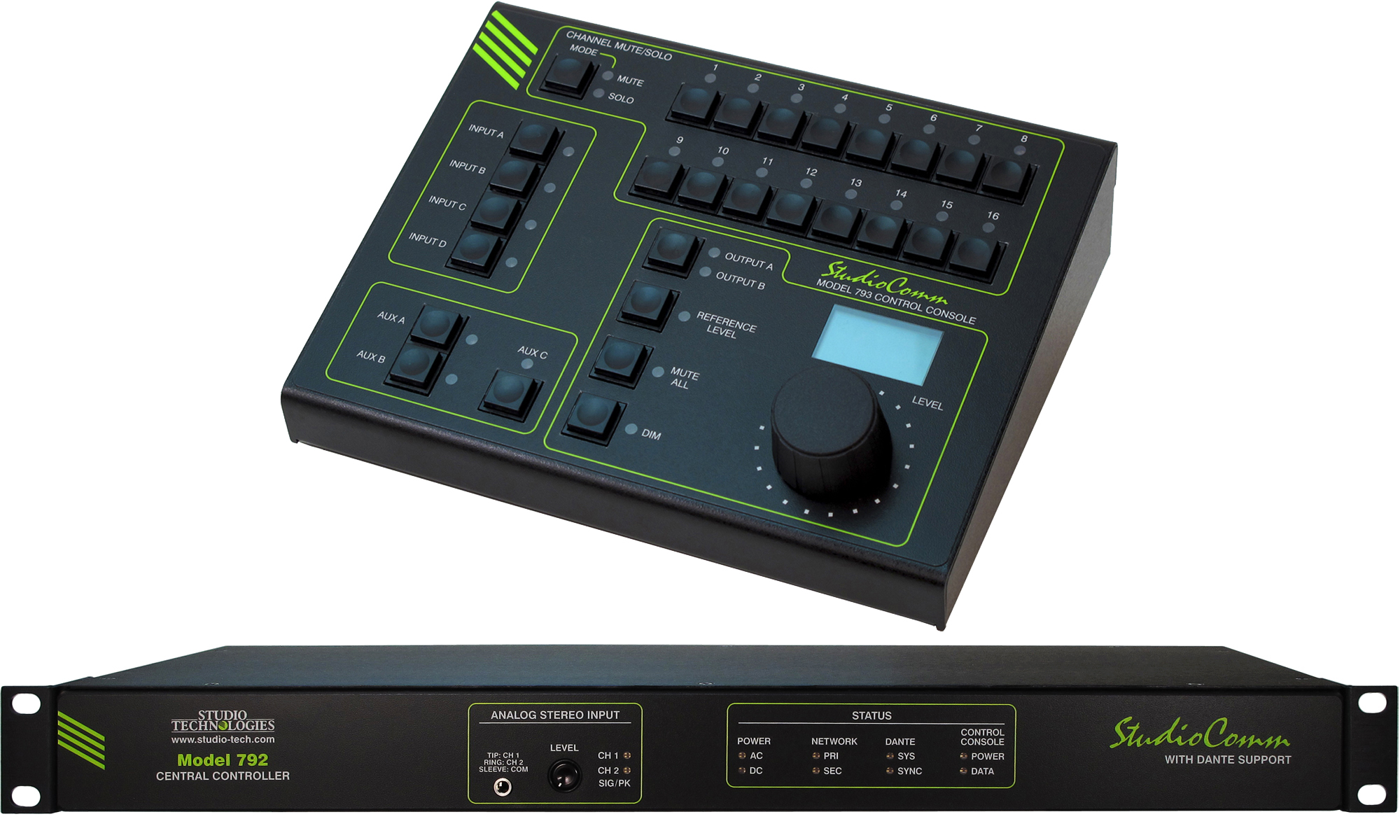Studio Technologies introduces its new StudioComm Dante Audio-over-IP-enabled multichannel monitoring system; the Model 792 Central Controller and the Model 793 Control Console; at NAB 2020 (Booth C7049). The new system combines a robust rack-mounted main electronics unit with a desktop user control surface. The “fully-pro” signal path uses programmable logic to support both digital and analog audio. An extensive set of configuration features allow the system to support next-gen immersive formats including 5.1.4, 7.1.4, and 10.2.

“We’ve designed the StudioComm system to fit easily into any professional multichannel environment,” says Gordon Kapes, president of Studio Technologies. “More and more studios are switching to Dante and AES67 networked audio infrastructures, but they still need to support analog – this system provides both. As with all Studio Technologies products, users can be confident that what they hear on the output is extremely close to what went in – nothing more.”
The Model 792 Central Controller has multiple digital and analog inputs with configurable time delay, source selection, and level control.
Digital and analog outputs support formats of up to 16-channels. Analog two-channel inputs and outputs offer convenient support for stereo reference signals. Features; including trim levels, delays, dim and reference level, and pre/post outputs; can be optimized using the system’s built-in web server-based menu pages. An FPGA-based 32-bit audio architecture offers high headroom and superior audio quality.
The multichannel analogue I/O stems use the Model 792’s rear-panel 25-pin D-subs in banks of eight channels, while a front panel 3.5mm stereo jack and level control provides a two-channel input for laptops, phones, and other stereo reference feeds. The digital audio I/O uses two Gigabit Ethernet interfaces to support switched and redundant Dante. A separate GigE Ethernet interface provides access to the Model 792’s management web pages. These allow connection to fully-independent audio and management networks. The unit also features both universal AC mains and 10-18V DC inputs, which allow redundant power supply operation.
All analog and Dante sources have independent level trim controls. Input signal delay of up to 999 milliseconds allows synchronization with video display latency. On the output side, all Dante and analogue channels have independent trim controls, pre- and post-fader source selection, selectable dim attenuation, user-definable reference levels, and custom labelling for the multichannel and stereo stems.
The Model 793 Control Console provides convenient, fast, and intuitive selection of all sources and outputs, reference level, dim function, mutes, and solos.
The user control surface features tactile, responsive, single-function buttons and a high-resolution encoder along with a graphics display. Four user definable input stems and two outputs are directly selectable on the front panel, along with mute/solo buttons for every individual channel. Users can also select dim, reference level, and mute all functions. The rotary encoder supports level control for stems of up to 16-channels. The graphics display provides numerical level and status information, along with important system information such as the system’s LAN IP addresses.
“We have been developing Dante networked audio solutions for several years now, “says Kapes. “This StudioComm system is an important step forward for us and represents excellent value and flexibility for any broadcast operation, post-production facility, or music studios that needs a robust, time-saving, and ergonomic networked audio solution.”
